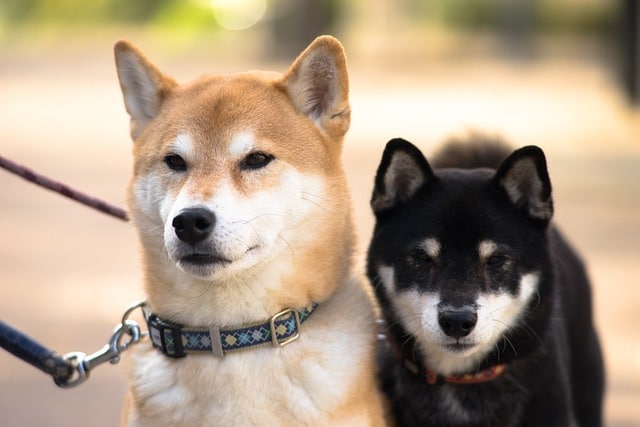The Shiba Inu has become increasingly popular in recent years due to its adorable fox-like appearance, independent spirit, and strong personality. This breed, which originates from Japan, is beloved by many dog lovers around the world. However, as its popularity has increased, so have some misleading myths about the breed. Let’s clear up some of these myths so you can better understand the true nature of the Shiba Inu.
1. Myth: Shiba Inu are aggressive dogs
One of the most common misconceptions about Shiba Inu is that they are inherently aggressive. This misconception often stems from the Shiba Inu’s assertive nature, which can be misleading to those unfamiliar with the breed.
reality: Shibas are not naturally aggressive, but they can be independent and aloof. They have a strong sense of self and can appear aloof and dominant in certain situations. However, aggression is not a breed trait. As with any dog, a Shiba’s behavior depends primarily on training, socialization and environment. Early socialization is key to making sure your Shiba is comfortable around people and other dogs.
Shiba Inu have a strong prey instinct, which is sometimes misconstrued as aggression. However, this instinct is more suited to chasing small animals than aggression towards humans or other dogs. With proper training and socialization, they can be great companions for both humans and other pets.
2. Myth: Shiba Inu are untrainable
Shiba Inu have a reputation for being difficult to train, with many people believing the breed to be untrainable or stubborn. This myth can lead some owners to not consider getting a Shiba Inu for fear of ending up with an uncontrollable dog.
reality: Shibas are certainly independent and have a mind of their own, but that doesn’t mean they’re impossible to train. The key is to understand their unique personality. Unlike other dog breeds that try to please their owners, Shibas tend to do things their own way. This doesn’t mean they’re impossible to train, it just means that training a Shiba Inu requires patience, consistency, and creativity.
This breed responds best to positive reinforcement and short, engaging training sessions. They need to understand that following commands is in their interest, not just to please their owner. Training may take a little longer than more obedient breeds, but with persistence it is entirely achievable.
3. Myth: Shiba Inu dogs aren’t affectionate
Another common misconception is that Shibas are cold, aloof dogs. Many believe that because they are aloof and independent, they are dogs that don’t bond with their owners or enjoy affection.
reality: Shiba Inu are affectionate, but they have their own unique way of showing affection. Shiba Inu are not the type to constantly seek affection, nor are they “velcro” dogs. However, this doesn’t mean they don’t love their owners. Shiba Inu are careful about when and how they show affection, but once they bond with someone, the bond is deep and lasting.
Shibas tend to be reserved, preferring to show affection through companionship rather than overt displays of affection like licks or cuddles. Shibas will often follow their owners from room to room, showing their loyalty and affection in subtle ways. They don’t always crave attention, but once they trust you, their loyalty and devotion is undeniable.
4. Myth: Shiba Inu are hypoallergenic
Some people believe that Shiba Inu dogs are hypoallergenic and suitable for people with allergies because of their short fur and clean appearance.
reality: Shibas are not hypoallergenic. In fact, they are known to shed a lot. Shibas have a double coat, and the thick undercoat sheds heavily twice a year during a period known as “blow coat.” This shedding can cause allergic reactions in sensitive individuals.
Shiba Inu are often a clean breed that grooms itself like a cat, but they can shed a lot. Regular grooming, such as brushing and bathing, can help reduce shedding, but it cannot completely eliminate allergens. If you have dog allergies, it’s important to spend some time with a Shiba Inu to see how your body reacts before bringing one into your home.
5. Myth: Shiba Inu are easy-to-groom pets
Shiba Inu are often thought of as easy to care for and low-maintenance pets due to their small size and independent nature, and some people believe that because they are not cuddly or spoiled, they do not require much attention or care.
reality: Shiba Inu are far from a low-maintenance breed. Although they don’t require constant attention like other breeds, they do need a lot of mental and physical stimulation. Shiba Inu are intelligent, active dogs that need regular exercise to stay healthy and prevent behavioral problems. Shiba Inu are notorious escape artists, and boredom can lead to destructive behaviors such as biting and running away.
In addition to exercise, Shibas require ongoing training, socialization, and grooming. They shed a lot, so regular brushing is necessary to keep their coat healthy. They’re also prone to certain health problems, such as hip dysplasia and patellar luxation, so regular veterinary care is essential.
Owning a Shiba Inu requires dedication and responsibility. They thrive in an environment where they are given plenty of attention, training and exercise, making them a challenging yet rewarding breed to care for.

Shiba Inu are unique, spirited dogs that don’t fit the mold of typical pet animals. Their independence and strong personalities are what make them so appealing, but also what makes them so difficult. They may not be the best fit for every home, but understanding their true nature can help you decide if they’re the right breed for you.
Dispelling these misconceptions is crucial so that potential owners understand that, although they can be independent and sometimes demanding, Shiba Inu are also loyal, intelligent and uniquely affectionate. With proper training, socialization and care, Shiba Inu can make a wonderful companion for someone who appreciates their unique characteristics.




